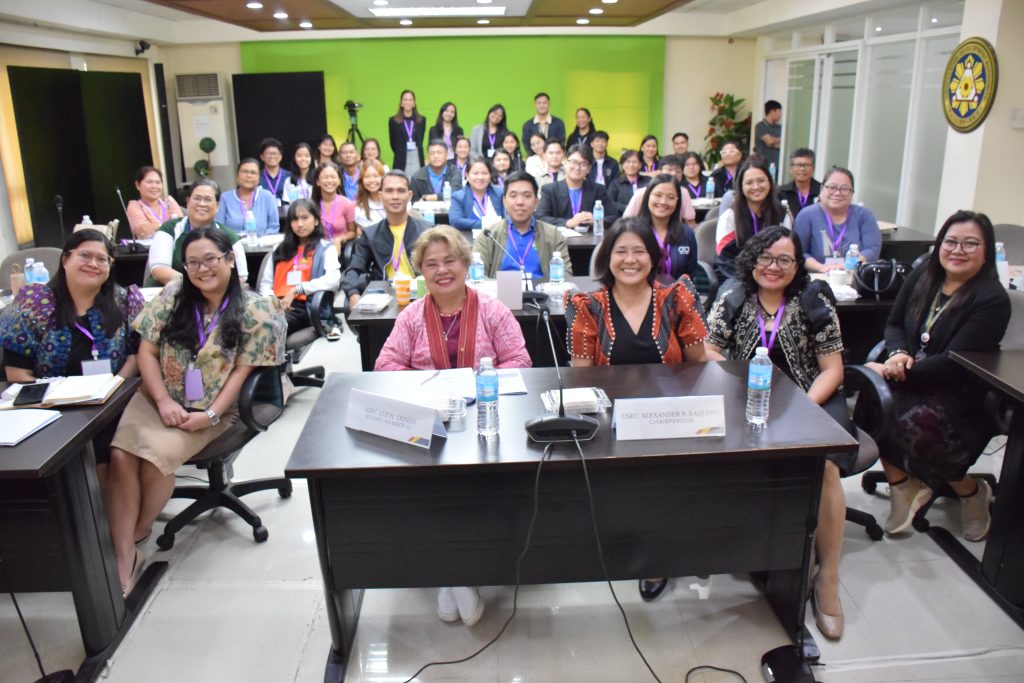
The Cooperative Development Authority (CDA), in pursuit of its mandate to establish and promote Alternative Dispute Resolution (ADR) mechanisms within the cooperative sector, the Legal Affairs Service – Legal Division conducted the Conflict Management Training for Cooperative Mediation Practitioners (Empowering Laboratory Cooperatives in Implementing Mediation-Conciliation) from June 9 to 11, 2025, at the CDA Head Office in Quezon City. This is in collaboration with the Education, Advocacy and Union Cluster.
With the theme “From Practitioners to Trainers: Building Expertise in Mediation and Conciliation in the Cooperative Sector,” the training aimed to empower Laboratory Cooperatives by enhancing their capacity to implement effective mediation and conciliation processes. The representatives of Laboratory Cooperatives attended the training together with their respective Guardian Cooperatives.
This three-day training served as a continuation of CDA’s initiatives aligned with Republic Act No. 11364 (CDA Charter of 2019) and its formal partnership with the Office for Alternative Dispute Resolution (OADR), particularly in advancing the institutionalization and implementation of ADR mechanisms within primary and emerging cooperative sectors, consistent with the policy objectives of the Authority. Building on the success of the previous ADR Trainers’ Training conducted in late 2023, this specialized training focused on capacitating young cooperative members with the basic competencies and ethical grounding required to serve as future conciliator-mediators within their respective cooperatives.
Through a combination of interactive lectures, workshops, case analyses, and simulation exercises, the training covered a total of six (6) modules such as the: introduction of conflict management training; the mediator; ethics in mediation and conciliation; anatomy and analysis of conflict; fundamentals of mediation; and stages of mediation. Participants who successfully completed the course became eligible for accreditation in accordance with CDA Memorandum Circular No. 2023-08, which outlines pre-accreditation training requirements for conciliator-mediators.

First days are often filled with pressure and uncertainty when attending formal training, but the Conflict Management Training for Laboratory Cooperatives broke that pattern by beginning with smiles, seeing young faces filled with laughter creating a positive atmosphere. This set the tone for a welcoming and engaging learning environment, creating the right mood for participants to actively take part and enjoy the rest of the sessions ahead.
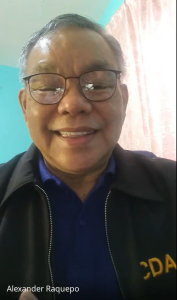
Usec. Alexander B. Raquepo officially opened the training with his welcome message through Google Meet. Usec. Raquepo expressed his optimism and confidence in the youth participants, emphasizing that the next generation of cooperative leaders may very well come from among them, and the future of the sector is secure with such promising individuals taking part in initiatives like this training.
He further encouraged the participants to reflect on their respective cooperatives’ succession plans and to take this opportunity not just to learn, but to share the knowledge gained with others. He highlighted the value of the training, noting from his own experience that mediation training is both enjoyable and enriching. As someone who eventually became a speaker through such training, he shared that participants would find the simulations particularly enjoyable.
Usec. Raquepo concluded with a reassurance that this training is only the beginning of many more opportunities to come, reinforcing CDA’s continued commitment to capacitating cooperative members in the area of mediation and conflict management.

Asec. Abdulsalam A. Guinomla opened his video message with warm congratulations to the participants, commending them for being part of the pioneering batch of youth trained in cooperative mediation and conciliation. He underscored that this training is more than just a training program- it marks a significant milestone that empowers young people to lead in fostering peace and understanding within their cooperatives.
He commended the Legal Division of the CDA for its initiative in championing this learning opportunity. “Not every young person gets the chance to be part of something as purposeful and transformative as this,” he noted. “You are here not by chance, but because you are seen as capable of becoming future enablers of dialogue and cooperation.”
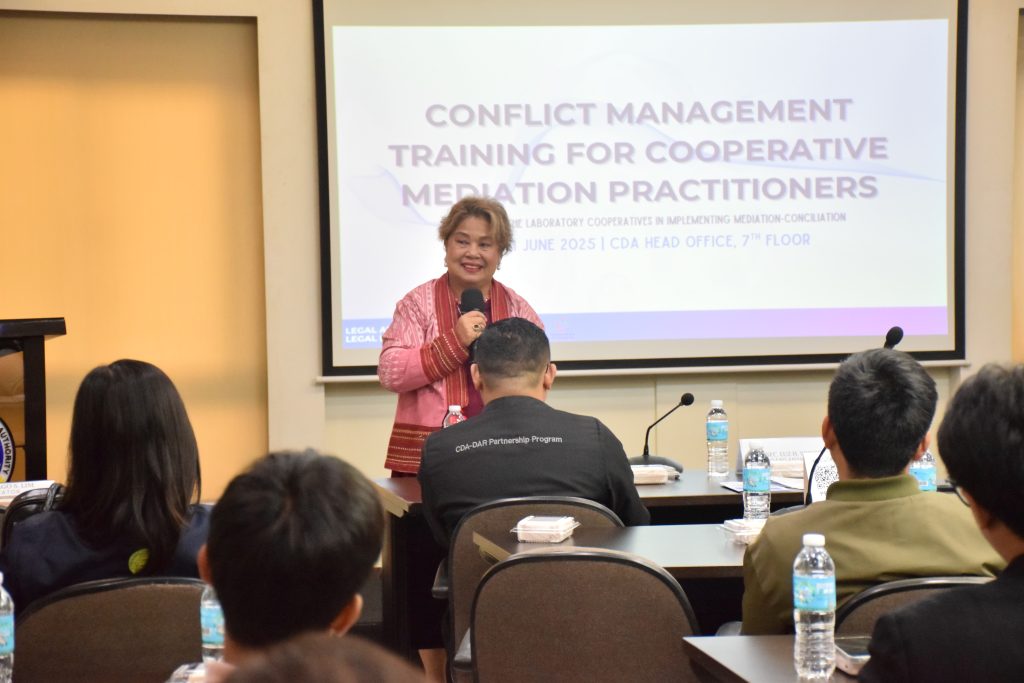
Asec. Luz Yringco delivered a reflective message, pointing out the need to shift the mindset that cooperatives are only for older people. “We need to change the mindset of our communities,” she said. Cooperatives are not just for the old, therefore Laboratory Cooperatives have a big mission to fulfill. She spoke directly to the youth participants, posing the question: “Do you know why you are here, of all people? No one forced you. You came here of your own free will, right?” She then affirmed that their presence was purposeful, “God has called you, and you answered the call. That’s why you are here.”
She put an emphasis on the urgency of preparing young people in conflict management. Conflict is a part of everyday life, it can arise the moment we wake up. But learning how to manage it through proper training takes time, effort, and the willingness to apply what we’ve learned. Her message was a powerful reminder that while conflict is part of life, responding to it with skill and understanding is a choice, and the youth are being equipped to lead that change.
Asec. Yringco left a note of encouragement and shared her vision. She expressed confidence in the capacity of the youth and the cooperative sector as a whole, affirming that with continued learning and collaboration, we are able to build cooperatives that are not only stronger but more resilient and sustainable, ready for the challenges that may come.
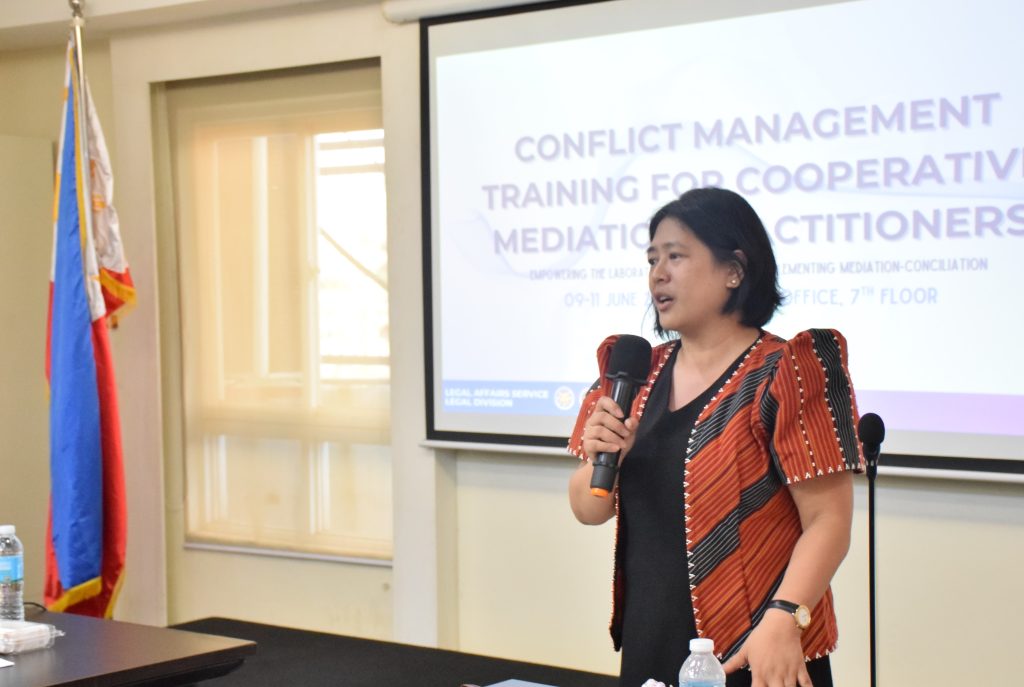
Speaking directly to the youth participants, Atty. Leah B. Banagui-Han opened her message by invoking a reminder from the Bible verse, “Don’t let anyone look down on you because you are young, but set an example for the believers in speech, in conduct, in love, in faith and in purity.” In a world where leadership is often tied to age, she challenged them to see their youth not as a limitation, but as a strength.
Her message resonated deeply, emphasizing that true progress cannot be achieved in isolation and that the youth are, indeed, the leaders of tomorrow. “We cannot do it alone,” she is hopeful that everything that has been said by many, that the future relies on the youth, is true. The goal is that, by the time we step into leadership within the cooperative, mediation will already be second nature. This illustrates her belief that skills should be honed long, beginning now. It’s about preparedness, ensuring that future leaders are not just learning on the job, but are already proficient.
This perspective led to her concluding emphasis on the importance of such training sessions. Her words serve as a call to action, advocating for early and consistent investment in the youth’s development, and for the youth to advocate the same.
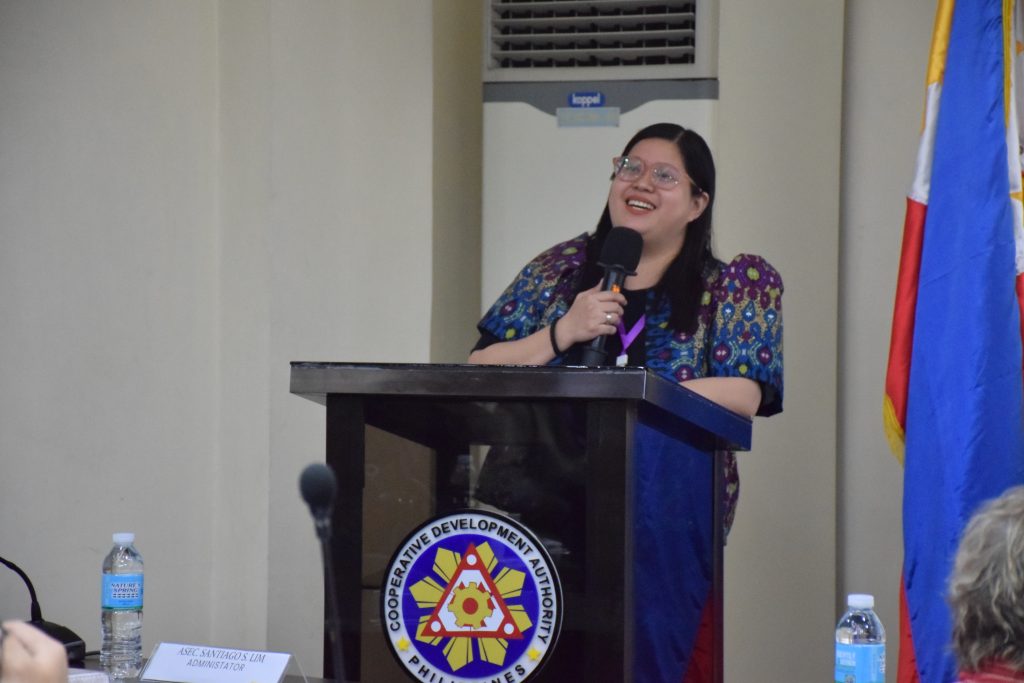
Atty. Sheena T. Rima warmly welcomed the participants, recognizing the presence of CDA officials, resource speakers, and especially the representatives from both Guardian and Laboratory Cooperatives. She began her talk by sharing the rationale behind the activity, with her relatable reflection, the word “conflict” in the title may sound heavy or intimidating, often associated with tension or even gossip. But, she reminded the participants, conflict is not inherently negative. It is a natural part of life, even at home, a simple question about what’s for dinner can spark a debate. In cooperatives, where values like solidarity are central, conflicts may still arise among members or officers. Left unresolved, these can hinder a cooperative’s growth, or worse, lead to its dissolution.
That is why, under the leadership of Atty. Leah Banagui-Han, the Legal Affairs Service initiated this training to equip cooperative members with the skills to manage conflicts constructively and help others do the same.
Youth members represent the future of the cooperative movement hence the priority of this training. Empowering the youth early with conflict management and mediation skills is not just an ideal, it is a necessity. By learning to manage disputes with understanding and respect, they help build stronger, more resilient cooperatives where every voice is heard and valued. Finally, she encouraged all participants to approach the training with open minds and full hearts. Each session, she said, was thoughtfully prepared to shape them into future leaders of their cooperatives.
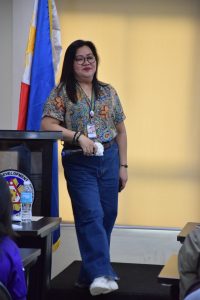
Before diving into the session, Ms. Anabelle D. Tuy lightened the mood by asking participants about the “conflicts” they faced just getting to the CDA Head Office, whether it was the battle with traffic, the great debate over what outfit to wear, or the silent war over who gets which bed at the dorm. It was a fun way to show that conflict, big or small, is something we all encounter even before breakfast.
Ms. Tuy then led the discussions on Modules 1 to 4 of the training, laying a solid foundation for participants’ understanding of mediation and conciliation in the context of cooperatives. She presented the legal bases that ground mediation and conciliation within the cooperative framework. The session also covered the structure and responsibilities of the Mediation and Conciliation Committee, including its composition, qualifications, powers and procedures, as well as the types of issues that are not subject to mediation-conciliation.
Ms. Tuy guided participants through the ethical responsibilities that mediators and conciliators must uphold. She explained the concept of ethics in the ADR context and detailed the mediator’s accountability to various stakeholders. The session taught that ethics serve as the backbone of credible and trustworthy mediation practices, reinforcing the importance of neutrality and professionalism at all times.
Together, these modules gave participants not just the knowledge, but also the values they need to confidently step into the role of conciliator-mediators in their cooperatives.
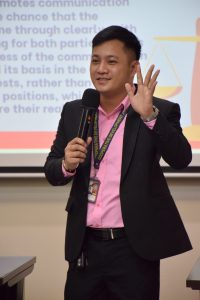
On the second day of the training, Mr. Jerome D. Bio led the discussions for Modules 5 and 6, focusing on the fundamentals and stages of mediation. He introduced participants to the concepts and values that support the mediation process. He also highlighted the mandatory skills mediators must possess: (1) active listening, (2) reframing, and (3) summarizing, which are crucial in guiding parties toward meaningful dialogue and mutual understanding.
Ethical considerations in mediation were also emphasized, including the importance of consent and confidentiality. Mr. Bio reminded the participants that being a mediator isn’t just about skills, it’s also about carrying yourself with professionalism and integrity, especially when it comes to how we offer our services and ensure that the mediation process is fair and respectful for everyone involved.
The second day’s sessions provided participants with both the necessary theoretical foundation and practical application, effectively preparing them for the third day’s post-training assessments. More importantly, it equipped them to fulfill the training’s overall goal: to confidently and competently handle real-life mediation scenarios within their respective cooperatives.
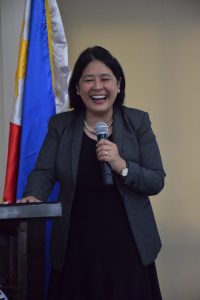
Atty. Leah B. Banagui-Han closed the training with an empowering message that struck both wisdom and warmth. In conflicts, mediation allows for dignity and resolution that uplifts everyone involved. That, she said, is the true “win.”
This training was never meant to be conventional. It was designed to be alive, with conversations, simulations, and moments that pushed participants to think, speak, and listen like true mediators. This was more than a training, it marked the beginning of a role that holds the potential to transform relationships and communities. She delivered an encouraging and affirming message, noting that upon the accomplishment of this training, participants are now eligible for accreditation, subject to the successful completion of the workshop requirements. At the same time, she reminded those who may not meet the criteria at this stage not to be disheartened. Failure, she emphasized, is not the end but a part of the learning process.
With that, she left the participants not with an ending, but with a beginning, a call to carry what they’ve learned beyond the training room and into the real world, where their voices are needed most.
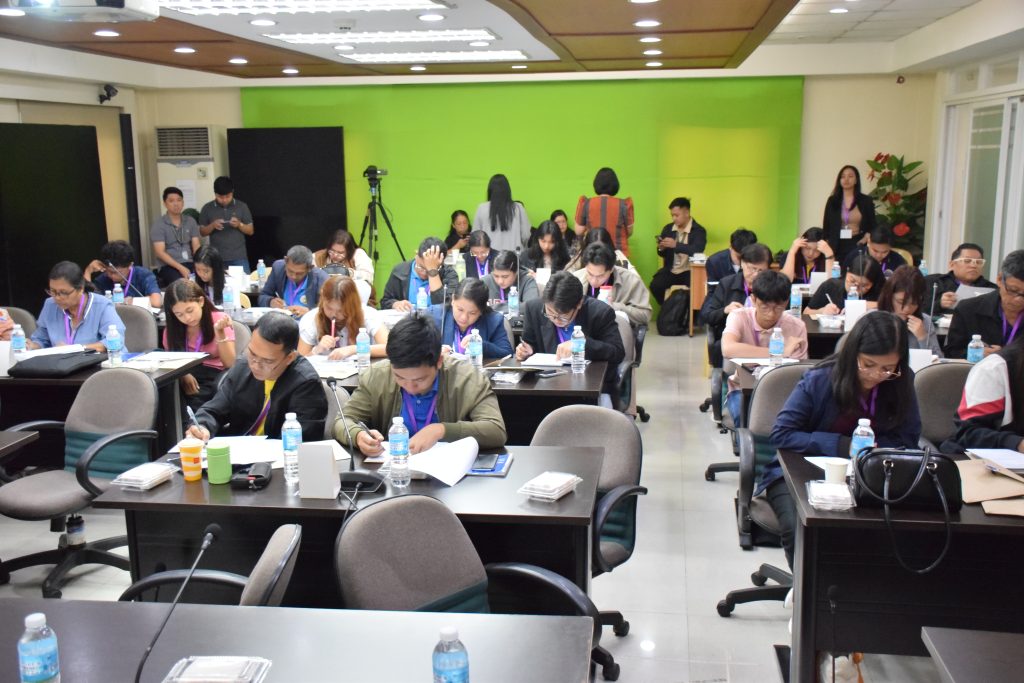
As the third and final day drew to a close, participants wrapped up their activities with a sense of fulfillment and newfound confidence. The simulation exercises and post-test not only tested what they had learned, but also allowed them to apply their skills in realistic scenarios. What began as a learning opportunity ended as a shared experience, one that empowered each participant to return to their cooperatives better equipped to promote peaceful resolution of conflicts. With lessons that go beyond the room, the participants are now ready to take on the role of future conciliator-mediators in their communities.
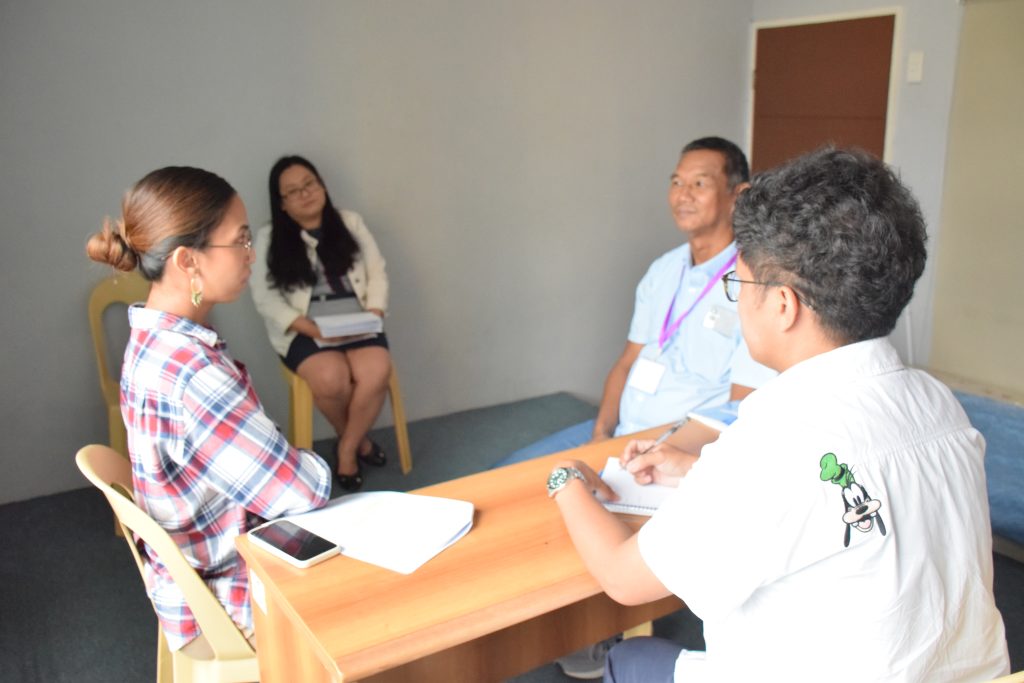
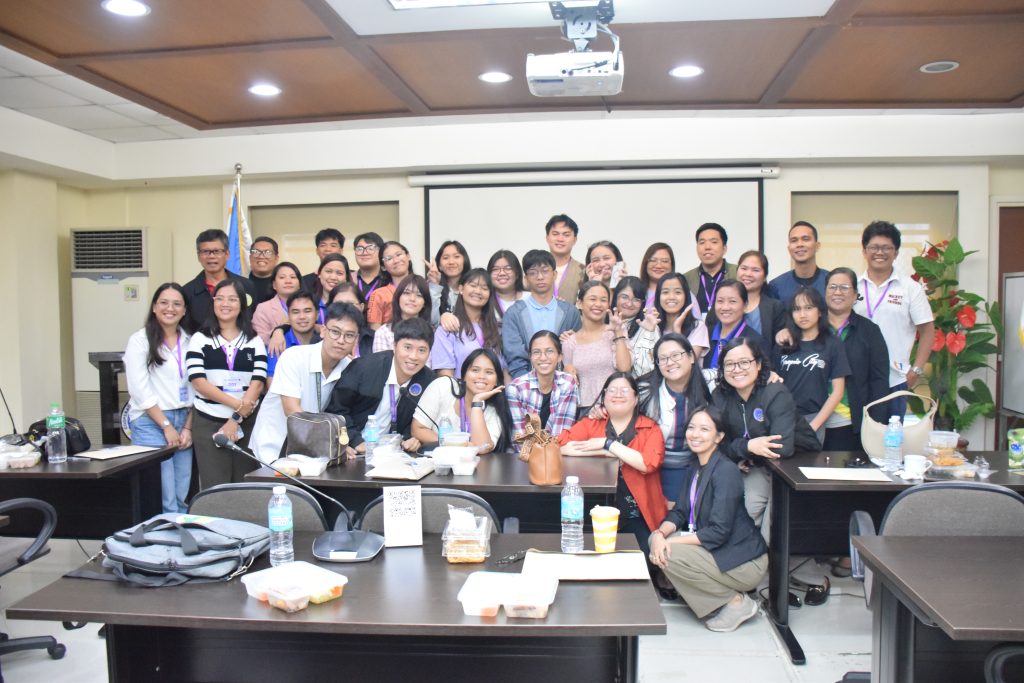
One that seeks not to win over someone, but to win with someone.






